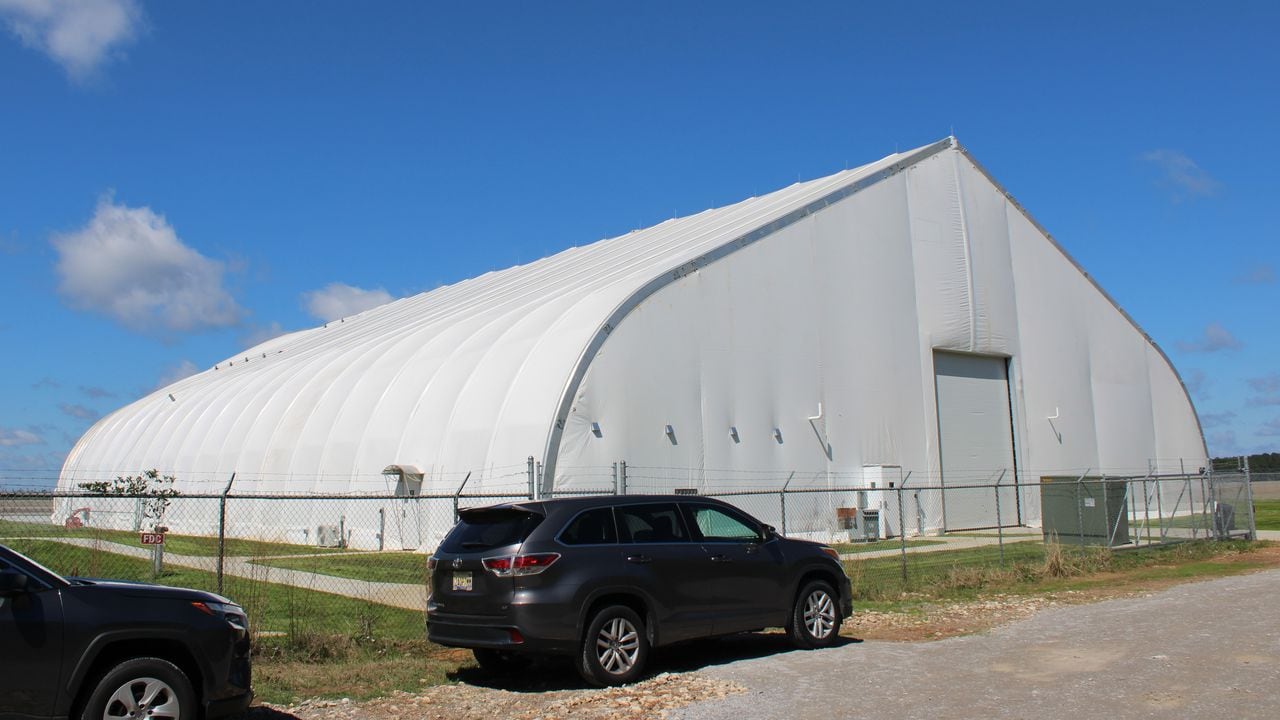Airbus expands military aircraft center in west Mobile as workforce grows
A branch of Airbus that specializes in upgrading an overhauling military aircraft has expanded its operations in Mobile, cutting the ribbon Wednesday on a new hangar for an operation that has doubled its workforce in the last few years and continues to add skilled jobs.
Airbus U.S. Military Aircraft, a branch of Airbus U.S. Space & Defense, is not the biggest Airbus operation in Mobile or the one that attracts the most public notice. It is, however, the oldest, having set up shop at Mobile Regional Airport in west Mobile in 2005. That’s two years before Airbus opened an engineering center at the Brookley Aeroplex, a forerunner of the massive Final Assembly Lines it would later bring to Brookley.
The Airbus U.S. Military Aircraft facility in west Mobile specializes in MRO (Maintenance, Repair and Overhaul) work on aircraft used by various armed forces, including the HC-144A Ocean Sentry used by the U.S. Coast Guard. (Back in 2017, Airbus and Coast Guard officials gathered at the Mobile facility to celebrate a partnership that had supported 100,000 hours of flight time for the Ocean Sentry fleet.)
The news on Wednesday was that the facility was ready to open a brand new hangar adding nearly 18,000 square feet of workspace, bringing the site’s total to around 65,000 square feet. Jose-Antonio De La Fuente, head of Airbus U.S. Military Aircraft, told the crowd of local dignitaries and employees that the operation had doubled its workforce in the last three years.
Rob Geckle, chairman and CEO of Airbus U.S. Space & Defense, said that 140 to 150 people now work at the operation, and expansion continues. The new hangar represented an investment of between $5 million and $10 million, he said.
A new fabric-skinned hangar at the Airbus U.S. Military Aircraft facility in west Mobile adds about 18,000 feet of space for maintenance, repair and upgrade work.Lawrence Specker | [email protected]
“Most of the Airbus announcements we get to do are at Brookley,” said Bradley Byrne, president and CEO of the Mobile Chamber. “Today is special because we’re here.”
“You are helping to protect our country and the interests of our country, and we’re grateful to you for that,” said Byrne. “But what this does to our economy in terms of being able to offer an ever-widening array of aviation services, aviation production, is huge. Mobile has become a center for aviation excellence in the world and you are a big part of that.”
Chris Curry, president of the Mobile Airport Authority, said the authority’s job “primarily is to create an environment where businesses like Airbus Space & Defense can flourish.”
“I’m frequently asked the question, what are you going to do with the regional airport?” Curry said, referring to plans to build a new international airport at Brookley and relocate commercial passenger services there in late 2025. “I gently remind them that we do have the Coast Guard aviation training unit and Airbus Space and defense here at the Mobile Regional Airport.”
The upcoming swap would seem to promise more room for growth, for an operation already based at the regional field.
“It’s going to free up more space for many more opportunities,” said Curry. “I think Airbus Space & Defense expansion is just one, but there’s a lot of other abilities for an airport that is in the shape that this airport is in.”
“I think it’s an opportunity,” said Geckle. “I mean, we will support whatever the local authority wants to do with the space. But if we can help as this moves towards [being an] MRO center of excellence, it fits in well with our growth plan and not necessarily just the U.S. fleet. I mean, if you have aircraft in Latin America, this could make sense to service them from here as well.”
Geckle said it’s a challenge finding qualified new employees, partly because the work must meet exacting standards.
“What we do is amazing,” he said. “When you’re talking about modifying or repairing, overhauling an existing aircraft and pulling out the avionics, you have to know how the aircraft is built and then you also have to know what these components can withstand in terms of repairing. So it’s highly qualified folks that we’re looking to hire. These are high-tech jobs, well-paying jobs.”
De La Fuente said some of the classes of workers needed include structural mechanics, electrical engineers and aircraft mechanics.
“Talking broadly, because of the rapid growth in the area, huge growth in the area, finding the workforce is a challenge,” he said. “There are a lot of projects in Mobile in different industries, but the common factor is that there is fast growth. So that puts some challenges on the you know, trying to find the resources, the workforce.”
